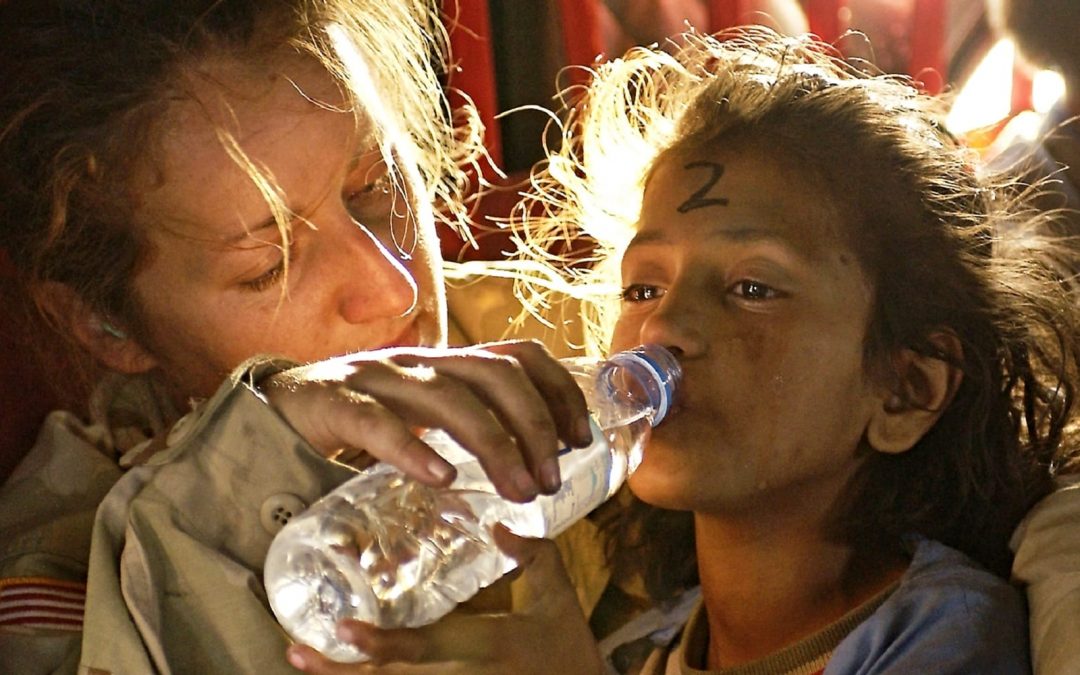While touring the devastation in the small community of Paradise, California, state Sen. Jim Nielsen had this to say about the tragedy: “It is a historic, almost biblical disaster. Old Testament.”
We could probably find similar comments about Hurricane Florence or the tsunami that struck Indonesia in September of this year. It has entered our cultural lexicon that some tragedies are of “biblical proportions.”
Where does this language and thinking come from? Why would we seek to bring together a terrible disaster with some sort of biblical view?
There is a species of Christian belief that focuses almost exclusively on those parts of the Bible where God is described as acting in a decisive and destructive manner to punish human sin.
Noah’s flood comes to mind, as does the destruction of Sodom and Gomorrah.
The ultimate destruction of “biblical proportions,” however, is found in the book of Revelation.
Within the pages of this book are graphic and elaborate descriptions of destruction and despair.
This is the long-anticipated apocalypse, the end of the world. The chance for redemption has passed, and only judgment and eternal suffering remain for the unrepentant.
I’ve been a student of the Bible for almost 50 years now, and my own conclusions about these matters is that there are indeed “biblical proportions” to be found, but death and destruction are not where we will find them.
Sure, God sent the great flood, but he saved Noah. God, it turns out, was not willing to give up on humanity and leave us hopeless.
For centuries, preachers have used Noah’s ark as a metaphor for God’s saving and redemptive grace.
The ark is a symbol of the resources God provides to help us live through the destruction and darkness of an evil world.
But for some reason, we are drawn to the images of destruction with only a passing nod toward images of hope.
I am certain someone who is reading these words right now thinks I am minimizing God’s judgment on a fallen world, but I’m not doing that. I’m simply maximizing God’s grace on a needy world.
Anyone more interested in destruction of biblical proportions over against grace of biblical proportions needs to ask why they feel that way.
There are other problems focusing on the apocalyptic rather than the redemptive nature of God. One of the most troubling is misunderstanding and misusing the idea of “God’s justice.”
In our culture, to invoke the idea of God’s justice means to seek to exact adequate punishment for wrongdoing. And the word “justice” is used that way in the Bible, but it is not the only way, or even the most common usage.
More frequently, to invoke God’s justice means to enter the world of the poor, the sick and the hungry.
Biblical justice is about being sure that all God’s children have what they need for the living of their lives.
Biblical prophets, as was true for Jesus himself, believed that those who have enough should share with those who do not have enough.
Sadly, in our culture, this understanding of biblical justice has been radically reduced to mere charity.
Once or twice a year, usually around Thanksgiving and Christmas, the biblical ideal of justice confronts us and we gladly put a few dollars in the Salvation Army bucket or give away our old and worn coats to the homeless, and sometimes we even take a day and serve food.
But throwing pocket change in the direction of the poor is not biblical justice.
Does that mean we should keep our change or not share our old coat or not stand and serve a meal to a hungry and homeless person? No, of course not. These charitable acts serve to bear witness to the systemic needs around us.
We simply need to remember that charity is not justice in biblical proportions. Changing social and economic systems that keep the weak and disenfranchised in poverty is justice in biblical proportions.
If our daily prayer is for God’s will to be done on earth as it is in heaven, we cannot be satisfied with solitary acts of charity.
“Love kindness,” the prophet Micah said, and have a tender heart for the hungry and sick that cross our path.
But also “do justice,” he said, and that means going after the greed and callous unconcern that creates and maintains the poverty around us.


